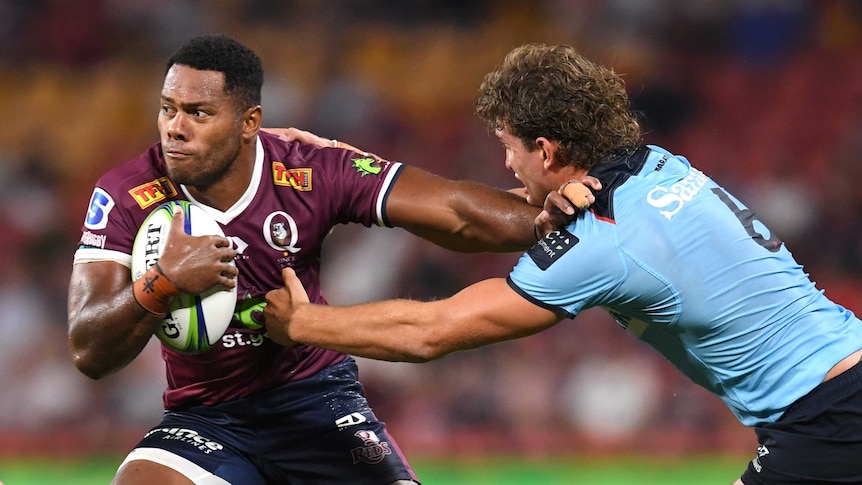
Concussion, caused by a head hit, is the most common type of match injury in rugby. These injuries have various effects on both players, including cognitive function. There are ways to lower your risk. Here are some tips to help prevent head injuries.
Concussions in rugby are the most common form of match injury.
Concussions are serious brain injuries that can cause dizziness, confusion and loss of consciousness. While the exact cause of concussions remains unknown, head impacts have been shown to increase brain health risk. Some head impacts can cause a concussion but others don't. The Drake Foundation funded a study that found professional rugby players had more risk for concussion.
In 2010, the number of concussions rose dramatically. The number of concussions per 1000 hours of play increased by nearly two per every 25 matches to 22.2 in the 2010-11 season. This was an increase of almost 3.5 times the level seen during the previous season. World Rugby responded to this increase by confirming that the minimum time for elite players to recover from concussions should be increased to seven to twelve days.

They result from head impacts
Head injuries in rugby are the result of head impacts caused by rugby tackles. These impacts cause shock to your brain and are not immediately absorbed. This can cause confusion, memory loss and dizziness as well as loss of consciousness. This injury is becoming a major concern for rugby players.
Head injuries in rugby are common, but they are not necessarily the most serious. CTE can be a problem in rugby players, so it is important to monitor them at least two to five times per year.
They have a different impact on women than they do on men
While rugby is a sport that men and women alike enjoy, head injuries to women are often more severe than in men. After sustaining a head trauma, women are less likely than men to be treated. This research shows the differences in the sport and gender. Head injuries for women usually result from players colliding with the knees of another player or the ground. These findings are particularly alarming for women who participate in competitive rugby.
Researchers at Swansea University, Wales, used mouthguards with sensors to measure head movement speed in one study. The aim was to understand the mechanisms behind head injury in rugby.

They impact cognitive function
Recent studies have looked at whether head injuries sustained by rugby players can affect their cognitive function. The BRAIN Study, a prospective cohort study of former male elite rugby union players from England, examined associations between concussion and cognitive function. The BRAIN Q tool was used for recording concussion exposure. The primary outcome measure was Preclinical Alzheimer Cognitive Composite. After correcting for potential confounders, researchers discovered an association between concussion severity and PACC score.
Researchers at Imperial College London did the research. It featured 44 elite rugby athletes and was published on the journal Brain Communications. They examined changes in brain tissue and white matter, which are the wiring of the brain. These changes could have a long-term impact on the brain's connections. But, it is still unclear if head injuries from rugby will impact a player's cognitive function.
FAQ
Who is the one who participates in the extreme?
Extreme sports are open to all abilities and ages. Extreme sport is equally appealing to children as for adults.
Younger children can play games such as tag, dodgeball, and capture of the flag. Older kids can join teams and compete against others.
Adults are able to participate in both individual and team sports. There are many ways to find a group to play in.
Ask someone who has already played it to show how you can start.
What makes extreme sport so popular
Extreme sports can prove dangerous. Extreme sports can be dangerous, but they provide adrenaline-pumping thrills as well as a feeling of accomplishment.
Extreme sports require a lot of time and money. However, this makes them accessible to people who would otherwise not have had access to such activities.
Many people love extreme sports because of these reasons. It might be worth thinking twice about whether you are willing to put your life at risk for something that could possibly kill you.
Is there an extreme sport in football?
It all depends on who you ask. Over the years, football has been played by millions around the globe. Many would argue that it is not a sport but a form of entertainment. Others believe it is as good a sport as any. Some even believe it is the ultimate sport.
Truth lies somewhere between these extremes.
Football is an extreme game. However, it requires teamwork, strategy and skill.
Why are extreme sports becoming more popular?
Extreme sports have become more popular due to people wanting to be part of something new and exciting. They enjoy being part.
They enjoy taking chances and pushing themselves to the limits.
People also enjoy watching other people perform their stunts.
Another reason extreme sports are becoming more popular is the availability of them in places they weren't previously. Indoor skydiving, such as indoor paragliding, is possible in many places. Companies all over the globe offer bungee jumping.
Statistics
- According to the United States Parachuting Association, about 21 people die yearly from skydiving. (livehealthy.chron.com)
- Boxing— 90% of boxers suffer brain damage over their careers, and this is not surprising in the least, considering that they are throwing punches at each other's heads. (rosenfeldinjurylawyers.com)
- Overall participation has grown by more than 60% since 1998 - from 5.9 million in 1998 to 9.6 million in 2004 Artificial Wall Climbing. (momsteam.com)
- Based on the degree of difficulty, the routine is scored on form and technique (50 percent), takeoff and height (20 percent), and landing (30 percent). (britannica.com)
- Nearly 98% of all "frequent" roller hockey participants (those who play 25+ days/year) are male. (momsteam.com)
External Links
How To
How can you master parkour skills?
Parkour can be described as a free-running technique in which people run through obstacles, such as trees, fences or buildings. It is one of the most well-known sports, with millions of participants all over the globe. Parkour can be done in many ways, including freestyle, wall climbing and obstacle courses, urban exploration, rescue, freerunning and urban combat.
Any activity that increases your health and physical fitness can be called fitness. It can mean working out at the gym, doing cardio exercises, or even just going for walks. Parkour is considered to be a sport as it requires the athletes to use their body strength.
These are some tips that beginners can use to get started with parkour.
-
Places that can cause injury or stairs should be avoided. Flat ground is the best option. Avoid hills.
-
You should wear shoes that are made from leather and rubber. You don't have to choose the right shoe for you. A parkour session can be made or broken by the right shoes.
-
Take water bottles with you and snacks for practice sessions.
-
Warm up before you start a parkour class. This means you should warm up your muscles before jumping into the action. Start off slow and gradually build up the intensity so that your muscles are fully warmed up.
-
Jumping shouldn't be a reliance on your legs and arms. Instead, concentrate on your core muscles and back muscles to help you get past obstacles.
-
Don't push yourself too hard; instead, take breaks every now and then. This will allow your body to recuperate from the exercise without getting hurt.
-
Listen to music while practicing parkour. Music helps you relax and concentrate better.
-
Stretch your muscles and joints after each session to prevent injury.
-
When you are exercising in public, make sure to keep your hands clean. This will help you avoid causing harm to others.
-
Keep track of your progress and keep a record of it in a notebook. This will help you to always recall your strengths and weaknesses.
-
Remember, parkour is intended to be fun. You should enjoy the process, and not let fear of falling hold your back. Take a step back if you do fall.
-
Everyday, you learn new tricks and techniques.
-
Be sure to eat healthy meals. Protein-rich foods will increase muscle mass.
-
You should find a mentor. Mentors will teach you how to do certain moves, as well as offer tips and advice about improving your skills.
-
Do not be afraid of asking questions. The people who love to share their knowledge with others are always happy to answer questions.
-
Practice makes perfect. You can train whenever you want.
-
Have fun!
-
Last but not less, remain safe!